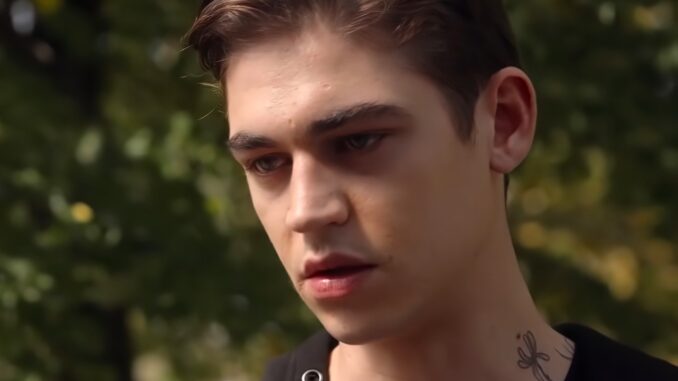
The saga of Tessa Young and Hardin Scott has captivated millions, a tumultuous romance that burned through five novels and four films, leaving a trail of broken hearts, mended souls, and an enduring question: Are Tessa and Hardin over for good? This query, seemingly definitive, unravels into a complex tapestry when one considers the cyclical nature of their relationship, the profound individual growth they undergo, and the intriguing revelation from the director about an alternate ending – a tantalizing whisper of what might have been, and what their finality truly signifies.
From their incendiary first encounter, Tessa and Hardin's relationship was less a gentle dance and more a perpetual collision. Their love story was a testament to the magnetic pull of opposites, but also to the destructive power of unresolved trauma and codependency. Breakups were not final farewells but merely dramatic intermissions, each separation a prelude to an even more passionate, albeit often painful, reconciliation. Hardin's volatile nature, his deep-seated insecurities masked by aggression, perpetually pushed Tessa away, yet her unwavering loyalty, laced with a perhaps unhealthy dose of masochism, consistently drew her back. This relentless push and pull, the constant promise of "this time it's different" only to fall back into old patterns, made a definitive end seem almost impossible within the narrative itself. Every "goodbye" felt like an ellipses, not a period.
However, the latter stages of their journey, particularly in After Ever Happy and After Everything, pivot towards individual introspection and healing. Tessa, battered but not broken, finally prioritizes her own well-being, her career, and her independence. She learns to set boundaries, to detach from the chaos, and to find self-worth outside of Hardin's orbit. Simultaneously, Hardin embarks on a difficult, but necessary, path of self-discovery. He confronts his past traumas, seeks therapy, and channels his pain into creation – becoming a writer. This maturation, this painful shedding of their toxic dynamic, is arguably what makes the final moments of their story so ambiguous. They are no longer the same two people who first met. They are better versions of themselves, but is that enough to bridge the chasm their past created, or does it simply mean they've grown beyond each other?
This brings us to the fascinating revelation of an alternate ending, a concept that immediately deepens the interpretive waters. While details remain scarce, the very existence of such a choice implies a crucial point of divergence in the narrative's potential paths. Imagine, for instance, an alternate ending where Tessa and Hardin never reunite, where their growth leads them irrevocably apart, proving that some loves, no matter how intense, are simply not meant to endure. This would offer a stark, perhaps more realistic, portrayal of broken trust and irreparable damage. Conversely, an alternate ending that offered a definitive, perhaps more immediate, "happily ever after" would have undercut the very essence of their arduous journey, trivializing the immense personal battles they had to win independently.
The director's choice to ultimately lean into the ambiguity of their final state – the years apart, the chance encounters, the implication of a future without a clear, definitive "together forever" bow – speaks volumes. It suggests that "over for good" is not a simple binary for characters as complex as Tessa and Hardin. It acknowledges that healing takes time, that love can evolve into something less passionate but more profound, or simply fade into a cherished memory. The chosen ending, by omitting the conventional romantic trope of a grand reunion, forces the audience to confront the messy, unresolved nature of real relationships. It suggests that their "end" is not an end at all, but a transformation, an ongoing process of becoming, with the lingering question of whether their paths will ever truly align again, or if the best version of their love is one observed from a respectful, healthy distance.
In conclusion, the question of whether Tessa and Hardin are "over for good" transcends a simple yes or no. Their journey, marked by cycles of destruction and rebirth, culminated in a period of intense individual growth that redefined their relationship. The director's "spill" about an alternate ending, rather than providing closure, illuminates the delicate balance between narrative resolution and the messy reality of love. Ultimately, their story suggests that some relationships, particularly those forged in the fires of chaos and growth, are never truly "over for good" in the conventional sense. Instead, they evolve, they linger, and they leave us to ponder whether their ultimate fate is a final farewell, or merely a healthy pause before an entirely new beginning. The truth, perhaps, lies not in a definitive answer, but in the enduring power of their complex, unforgettable love story to make us ask the question.
